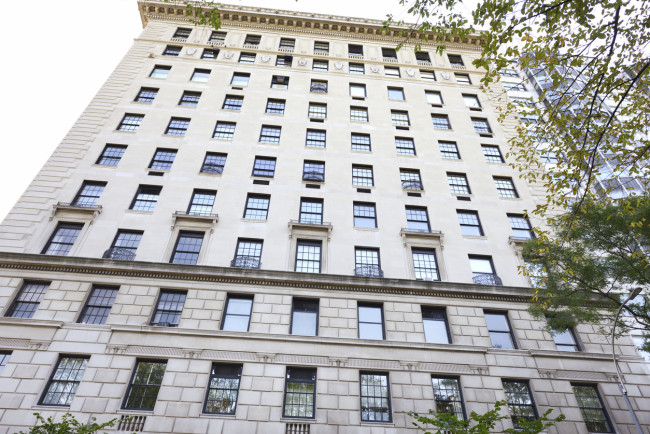Is it possible to fight an assessment in a NYC condo or co-op?

Assessments to pay for a boiler replacement or roof repair will not generally be opposed as they are clearly required to maintain the building.
iStock
Is it possible to fight an assessment in a New York City condo or co-op building?
“It depends on what you mean by ‘fight,’” says Bonnie Reid Berkow, a founding partner of Wagner, Berkow & Brandt who has more than 30 years of litigation experience representing condominium boards. Generally, a board has the right to impose an assessment to pay for necessary building expenses and there is little that an apartment owner or shareholder can do to legally prevent the assessment.
However, most boards will be sensitive about having the support of shareholders or unit owners when imposing assessments. If there is strong disapproval about the nature of the work or the cost of the project, the board may be willing to reconsider its scope. This is particularly true if the project requiring the assessment is aesthetic—such as lobby or hallway renovation, Berkow says.
An important distinction between condos and co-ops
There is a difference between a condo and a co-op when looking at assessments.
“In a condo, each unit is individually owned. If a major repair is required to the common areas, the apartment owners will be assessed according to their ownership interest to pay for the repair,” Berkow says.
Technically, assessments are not allowed in a co-op, she says. However, if there is a sudden major expenditure that cannot be covered by the money in the reserve account or if it will substantially deplete the account, the board can impose what they may call an “assessment,” but is more properly called a “temporary maintenance increase.” Co-op owners, like condo owners, will be assessed according to their ownership interest.
In either case, whether it is a co-op or a condo, the board generally has the right to determine cash requirements and assess shareholders or apartment owners under the rules of business judgment.
Talk to your neighbors
If a sufficient number of people are concerned or opposed to the assessment, you may be able to call a special meeting to discuss the assessment so that it can be better explained by the board.
“The most important thing a board can do when faced with a major expense is to keep the apartment owners or shareholders informed,” Berkow says. If shareholders or owners know why a major expense is required and understand how the board has come to its decision, they are more likely to accept it.
A general informational meeting can be productive. “The board can discuss why the repair is needed, whether bids have been sought or what plans are in place to bid out the job, the current state of the reserve account for the building and explain why it is necessary to raise additional funds,” Berkow says.
Some things are fairly easily explained and understood. The boiler, for example, may be at the end of its useful life and need to be replaced, Berkow says. “The board can explain the type of boiler being recommended, any cost savings that may be realized by a more energy efficient boiler, what the cost will be for a new boiler and how the cost was distributed according to the ownership interest,” she says.
There may also be differences in the way the assessment is collected. Sometimes the board will provide the option of paying the assessment in one lump sum or allowing payment to be made over a number of months, with a small discount if paid in a lump sum.
“This will allow a portion of the money to be collected upfront so that it will be available to start the project,” Berkow says. It also helps to lighten the financial burden on some who may have less financial resources or are on a fixed income. It is generally helpful to conduct a survey to know in advance how many people would be interested in paying upfront in one lump sum so the board can properly budget the project.
Consider the scope of the project
Check the bylaws to make sure the board is allowed to impose this type of assessment. “Generally, the board has the authority to impose an assessment on apartment owners to pay for necessary building expenses and its business judgment will not be reviewed by a court,” Berkow says.
However, the authority of the board may be limited by the bylaws. For example, the bylaws may require approval of unit owners for an expenditure of more than a specific amount, or under certain circumstances.
Berkow recalls one case where the board required unit owner approval for capital improvement expenses above $100,000 but didn’t require unit owner approval if the expenditure was for a repair. Certain unit owners objected and refused to pay the assessment because it had not been approved by a majority of unit owners.
The issue came down to whether the work was a “repair” or an “improvement." In this case the work was determined to be a repair so unit owner approval was not needed and the assessment was able to stand. The board could also have circumvented the unit owners’ objections by scheduling the work so that it was less than $100,000 in each year.
Putting forward alternatives
In order for the assessment or maintenance increase to be imposed, the work should be for something that benefits the building and everyone in it. Assessments to pay for boiler replacement, or repairs to the façade or roof will not generally be opposed as they are clearly required to maintain the building.
Berkow says whether or not the assessment will face opposition often comes down to the size of the building, the amount of the assessment, and whether all residents benefit from the work equally. For example, the board might decide it wants to build a gym or a children’s play room. This type of project might be opposed by some who do not think it will be used by many residents in the building or help increase property values.
If the assessment is for a lobby or hallway renovation, or similar aesthetic improvement, circulate a petition to find out how many shareholders are opposed and provide it to the board. “If faced with substantial opposition, the board may appoint a committee to review the scope of the project and present alternative choices,” Berkow says.
It’s also possible shareholders may have different ideas about how to raise money for the project. A meeting of shareholders can be productive in coming up with alternative approaches to the problem.
“Perhaps they would prefer to refinance the mortgage or would like to vote on a flip tax increase,” Berkow says. These options can be politically charged and legally complex issues but both can be helpful in creating a reserve fund for the building going forward, particularly if the amount of the proposed assessment is very substantial.
Berkow adds, “A lawsuit to challenge an assessment imposed by the board will not likely be successful unless the board did not have the authority under the bylaws.”
New York City real estate attorney Bonnie Reid Berkow is a founding partner of Wagner, Berkow & Brandt with more than 30 years of experience litigating in state and federal courts in New York state, including cases involving breach of contract, fraud and breach of fiduciary duty, in addition to real estate disputes and commercial actions. To submit a question for this column, click here. To ask about a legal consultation, send an email or call (646) 780-7272.
You Might Also Like




























